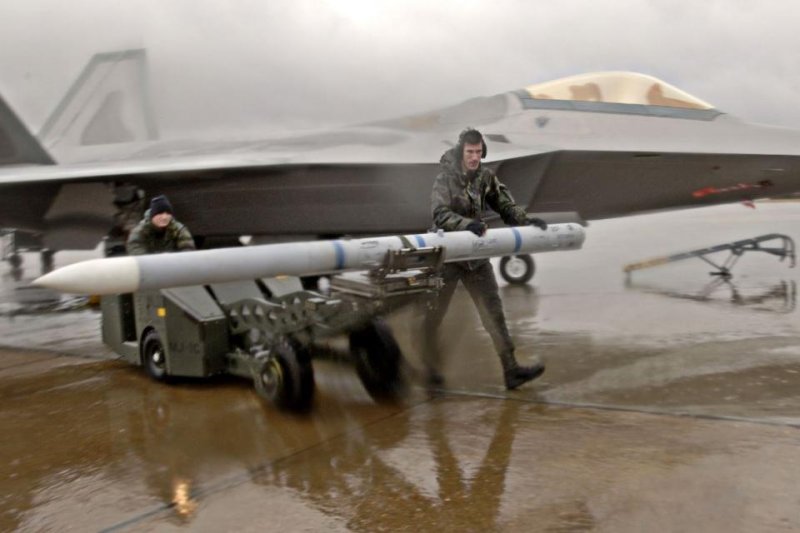Hungary has been approved for a $500 million purchase of AIM-120C-7 AMRAAM missiles, the Defense Security Cooperation Agency announced on Tuesday. Photo by SSgt. Eric Sheler/U.S. Air Force
Aug. 28 (UPI) -- The U.S. State Department approved the sale of AIM-120C-7 Advanced Medium-Range Air-to-Air Missiles to Hungary at an estimated cost of $500 million, the Defense Security Cooperation Agency announced.
The approval, announced on Tuesday, came after the Hungarian government requested the purchase of 180 AMRAAM missiles, training missiles, cryptographic and communication security devices, and related equipment.
The AIM-120C-7 missiles are regarded as an industry standard and the most popular beyond-visual-range missile on the market. Made by Raytheon Co., over 14,000 have been made for the U.S. military, as well as for 37 other international customers.
Hungary, a NATO member since 1999, will use the missiles to "modernize its armed forces and expand its capability to deter regional threats," the DSCA said in a statement.
DSCA makes reference to providing key allies with defense articles and services defense itself and be interoperable with both the U.S. and other allies, which may refer to concerns about potential actions by Russia.
NATO countries adjoining Russia have expressed concerns over potential invasion, and although no new bases are under construction in Latvia, Poland, Hungary and other countries, improvements are being made to existing infrastructure to ensure it supports specific requirements of NATO and the United States.
The 2018 U.S. military budget, for example, included requests for refueling infrastructure and a tactical fighter aircraft parking apron and taxiway at Amari Air Base, in Estonia, to support A-10, F-15, F-16, F-22 and F-35 aircraft. The 2019 budget request sought $16 million more for U.S. Special Operations Command training and operations facilities at Amari.
Kecskemet Air Base in Hungary saw $56 million in improvements for fuel storage, taxiway construction and other to accommodate the F-15, A-10 and C-5 transport aircraft.
The Hungarian government recently responded to accusations that the country is not pulling its weight in NATO.
Zoltán Kovács, Hungary's state secretary for international communications and relations, said on Aug. 16 that they nation has "embarked on our biggest military development program in the 29 years since the fall of the communist regime."
He quoted Prime Minister Viktor Orbán, at a Budapest reception honoring the United States' Independence Day on July 9, saying that the United States "can count on us in the fight for our common values, whether it be in the meeting rooms or on the battlefields."















